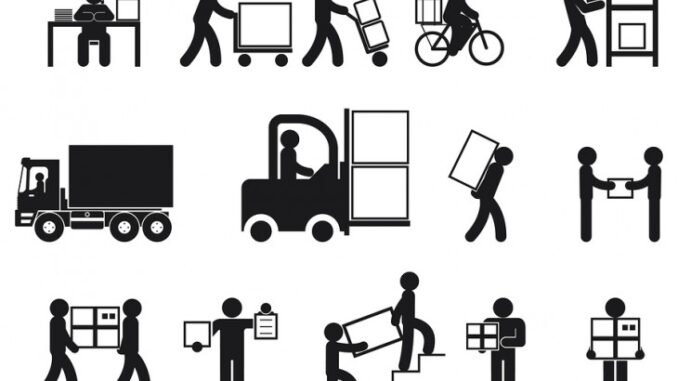
If you’ve never considered a job in logistics or transportation, it’s probably because the career path never occurred to you, or maybe you didn’t even know it existed at all. But there’s a good reason that more and more young people are turning to the logistics and transportation industries: business is booming.
While there’s plenty of overlap, logistics and transportation each represent distinct industries. Logisticians, for example, help organize and streamline a company’s supply chain in order to ensure that materials are transported as quickly and efficiently as possible. So what does that mean, exactly? A logistician working in the agricultural industry, for example, would help an organization deliver its products—maybe bushels of wheat or vats of unpasteurized milk—to consumers in a timely manner. If you think about all the moving pieces and limited shelf-life of the products themselves, the organization of the supply chain becomes integral. A couple years ago, National Geographic detailed the complex system required of food delivery: “On any given day, up to half a million trucks criss-cross America to give people fresh food at the peak of ripeness,” writer Dan Stone offered. “Often, that food comes from thousands of miles away, shipped through trucks and warehouses.” That’s where logistician and transportation workers come into play.
Obviously not everyone operating in this field will deal with the same supply chains, but the work itself is similar throughout industries.
So why should you care? According to a 2014 report from Fortune, “The logistics industry…[makes up] 8.5% of GDP.” Even more alluring: “the logistics business will be looking to fill about 1.4 million jobs, or roughly 270,000 per year, by 2018,” and there haven’t been enough applicants for a long time. Which is where you might come in.
Read on for a shortlist of transportation and logistics career options.
- A supply chain manager can expect to work at any step in the delivery of goods, from the production and purchase of raw materials to the warehousing and distribution of end-products. Supply managers help organizations limit and reduce costs as well as help develop strategies for customer safety and satisfaction.
- An analyst working in either the logistics or transportation industries will generally crunch data so that a company can reduce costs in the distribution of goods.
- A logistics engineer fills a very specialized role in the coordination of supply chains and helps organizations understand and improve performance metrics like landed cost, which is the total cost of producing and distributing a product.
- An operations manager oversees several steps in the production and distribution of a product, including the manufacture and storage of goods.
- Air traffic controllers work at and with airports to ensure the safe and organized flow of air traffic.
- Aircraft mechanics are mechanics who work in the field of aviation and might conduct inspections or perform routine maintenance on aircrafts of all types.
- Heavy truck dispatchers work alongside truck drivers to coordinate the delivery of goods and services.
- A track inspector inspects railroad and subway tracks for safety and compliance concerns.
- A transportation coordinator oversees every step of the transportation and distribution of goods, including dispatching, shipping, and more.
- A materials planner oversees inventory for a company that manufactures or distributes goods.
